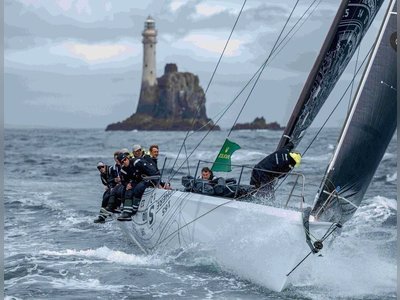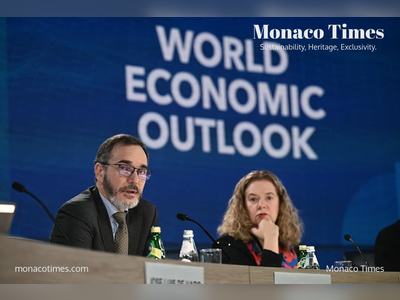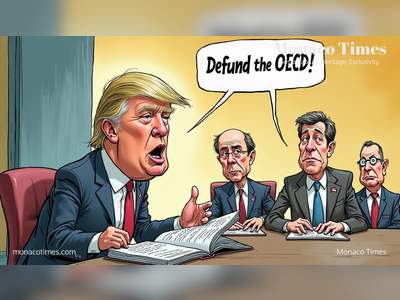Monaco Faces Potential European Blacklisting Amid Financial Scrutiny
The European Commission signals intention to list Monaco among high-risk jurisdictions for money laundering and terrorism financing.
Monaco is facing the prospect of being placed on the European Commission's blacklist of jurisdictions with high risks for money laundering and terrorism financing, following a notification to its authorities.
This announcement, disclosed on June 4, 2025, marks a significant setback for the principality, which is already under increased scrutiny since being placed on the Financial Action Task Force's (FATF) greylist in June 2024. A formal decision on the blacklisting will require approval from the European Parliament, which could position Monaco alongside countries such as Afghanistan, North Korea, and Panama.
In contrast, the United Arab Emirates is set to be removed from this list.
The Commission has identified ongoing 'strategic deficiencies' within Monaco's systems for combating illicit financial flows.
Despite persistent efforts by Monégasque authorities to strengthen their legislative and institutional frameworks, the impending inclusion on the blacklist could have tangible repercussions for economic actors operating in or transacting with the principality.
International financial institutions are obligated to implement enhanced due diligence measures for clients based in countries on such lists, potentially leading to prolonged transaction times and a restriction on certain financial flows.
Sectors beyond banking, including the art market, auction houses, and non-profit organizations, are likely to face intensified scrutiny as well.
This European development comes on the heels of Monaco's retention on the FATF's greylist, which includes countries under enhanced observation.
Currently, only three European nations remain on this list: Croatia, Bulgaria, and Monaco.
In March 2025, Minister of State for Economy and Finance Pierre-André Chiappori expressed optimism, asserting that 'significant progress' had been achieved following the Moneyval report released in December 2022, which was recognized by international bodies.
He indicated a 'bold yet achievable' goal of exiting the greylist by mid-2026. Prince Albert II also conveyed optimism in a May 2025 interview, noting that the concerns surrounding Monaco's greylist status were legitimate, but currently, the economic impact appeared to be limited, with stable fundamentals in key sectors including finance, real estate, and tourism.
The timing of the Commission's decision coincides with ongoing legal proceedings that began on June 2, 2025, involving former police officials charged with corruption, money laundering, and influence peddling.
This trial features the former head of the administrative police division, Christian Carpinelli, among eleven defendants.
While this European Union action might reflect deeper concerns about Monaco's financial regulation practices, the principality's leadership insists on an ongoing commitment to enhance the attractiveness and regulatory quality of the jurisdiction.
With a scheduled state visit by French President Emmanuel Macron on June 7-8, 2025, the timing of the EU's alert may introduce an additional political dimension to an already sensitive issue for Monaco.
This announcement, disclosed on June 4, 2025, marks a significant setback for the principality, which is already under increased scrutiny since being placed on the Financial Action Task Force's (FATF) greylist in June 2024. A formal decision on the blacklisting will require approval from the European Parliament, which could position Monaco alongside countries such as Afghanistan, North Korea, and Panama.
In contrast, the United Arab Emirates is set to be removed from this list.
The Commission has identified ongoing 'strategic deficiencies' within Monaco's systems for combating illicit financial flows.
Despite persistent efforts by Monégasque authorities to strengthen their legislative and institutional frameworks, the impending inclusion on the blacklist could have tangible repercussions for economic actors operating in or transacting with the principality.
International financial institutions are obligated to implement enhanced due diligence measures for clients based in countries on such lists, potentially leading to prolonged transaction times and a restriction on certain financial flows.
Sectors beyond banking, including the art market, auction houses, and non-profit organizations, are likely to face intensified scrutiny as well.
This European development comes on the heels of Monaco's retention on the FATF's greylist, which includes countries under enhanced observation.
Currently, only three European nations remain on this list: Croatia, Bulgaria, and Monaco.
In March 2025, Minister of State for Economy and Finance Pierre-André Chiappori expressed optimism, asserting that 'significant progress' had been achieved following the Moneyval report released in December 2022, which was recognized by international bodies.
He indicated a 'bold yet achievable' goal of exiting the greylist by mid-2026. Prince Albert II also conveyed optimism in a May 2025 interview, noting that the concerns surrounding Monaco's greylist status were legitimate, but currently, the economic impact appeared to be limited, with stable fundamentals in key sectors including finance, real estate, and tourism.
The timing of the Commission's decision coincides with ongoing legal proceedings that began on June 2, 2025, involving former police officials charged with corruption, money laundering, and influence peddling.
This trial features the former head of the administrative police division, Christian Carpinelli, among eleven defendants.
While this European Union action might reflect deeper concerns about Monaco's financial regulation practices, the principality's leadership insists on an ongoing commitment to enhance the attractiveness and regulatory quality of the jurisdiction.
With a scheduled state visit by French President Emmanuel Macron on June 7-8, 2025, the timing of the EU's alert may introduce an additional political dimension to an already sensitive issue for Monaco.











